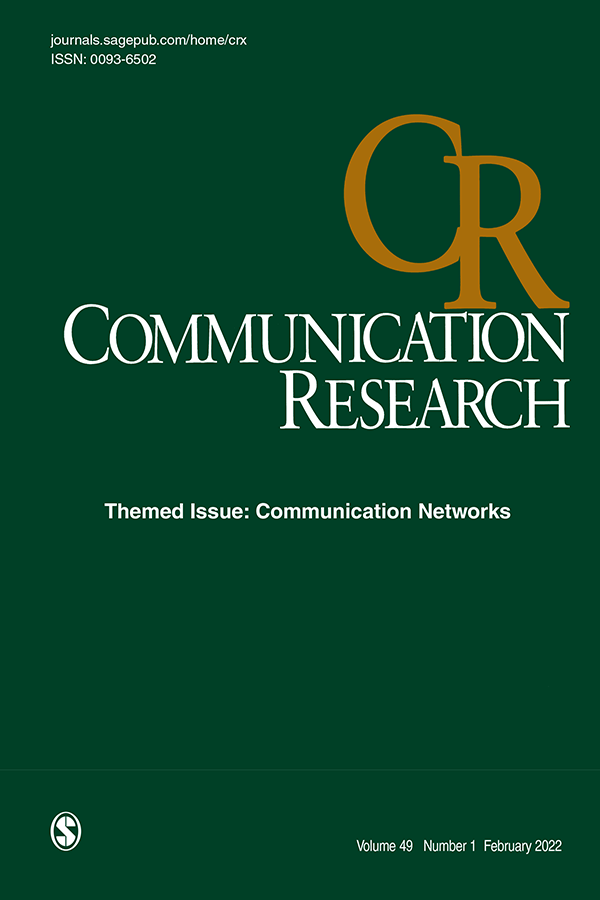简短但关键?:“假新闻”和“反精英”媒体攻击如何削弱社交媒体上感知的信息可信度
IF 4.9
1区 文学
Q1 COMMUNICATION
引用次数: 2
摘要
公民越来越多地转向社交媒体获取信息,在那里他们经常依靠线索来判断新闻信息的可信度。在这种环境下,民粹主义政客利用“假新闻”和“反精英主义”攻击来破坏新闻信息的可信度。本文认为,要真正理解这些批评线索的影响,必须同时考虑额外的上下文线索以及个人层面的调节因素。在一项因子调查中,我们让715名受访者看到一位政客的推文,该推文转发并诋毁了一条主题和来源各不相同的新闻信息。我们发现,假新闻提示和反精英提示的全面效果有限,但如果信息与选民的问题立场不一致,则会降低可信度。因此,我们的研究结果对民粹主义媒体批评线索的力量提供了更乐观的看法,并表明来源和确认启发法(仍然)对公民的可信度评估有更强的影响。本文章由计算机程序翻译,如有差异,请以英文原文为准。
Short but Critical?: How “Fake News” and “Anti-Elitist” Media Attacks Undermine Perceived Message Credibility on Social Media
Citizens increasingly turn to social media for information, where they often rely on cues to judge the credibility of news messages. In these environments, populist politicians use “fake news” and “anti-elitist” attacks to undermine the credibility of news messages. This article argues that to truly understand the impact of these criticism cues, one must simultaneously consider additional contextual cues as well as individual-level moderators. In a factorial survey, we exposed 715 respondents to tweets by a politician retweeting and discrediting a news message of which topic and source varied. We find that both the fake news cue and the anti-elitist cue have limited across-the-board effects but decrease credibility if the message is incongruent with voters’ issue positions. Our results thus offer a more optimistic view on the power of populist media criticism cues and suggest that source and confirmation heuristics are (still) stronger influences on citizens’ credibility evaluations.
求助全文
通过发布文献求助,成功后即可免费获取论文全文。
去求助
来源期刊

Communication Research
COMMUNICATION-
CiteScore
17.10
自引率
0.00%
发文量
20
期刊介绍:
Empirical research in communication began in the 20th century, and there are more researchers pursuing answers to communication questions today than at any other time. The editorial goal of Communication Research is to offer a special opportunity for reflection and change in the new millennium. To qualify for publication, research should, first, be explicitly tied to some form of communication; second, be theoretically driven with results that inform theory; third, use the most rigorous empirical methods; and fourth, be directly linked to the most important problems and issues facing humankind. Critieria do not privilege any particular context; indeed, we believe that the key problems facing humankind occur in close relationships, groups, organiations, and cultures.
 求助内容:
求助内容: 应助结果提醒方式:
应助结果提醒方式:


